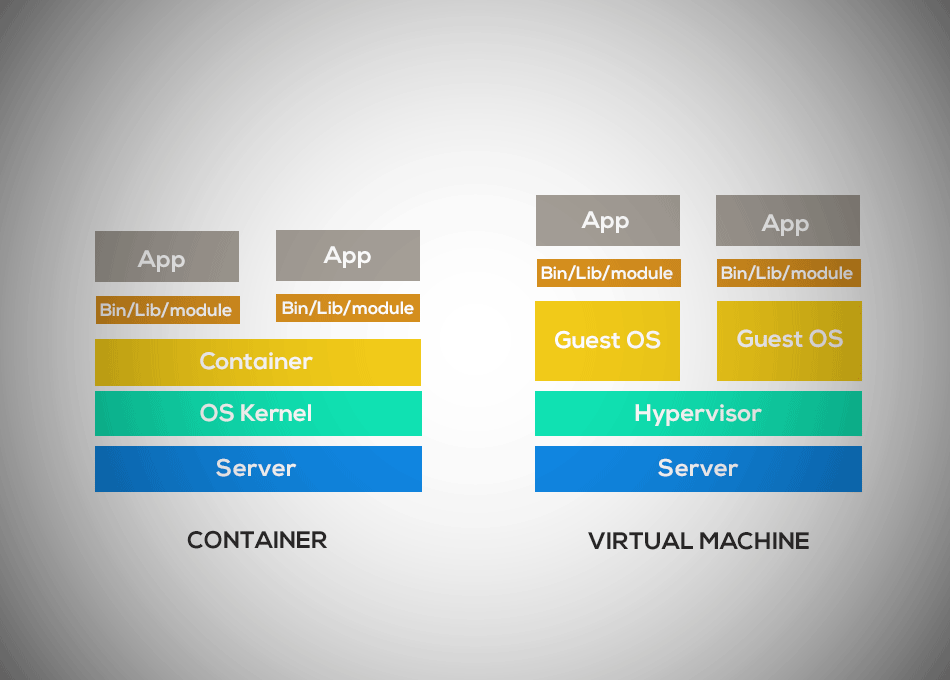Containers can be considered as a subsidiary of virtualization, a sort of “new generation” which introduces significant innovations to the traditional technique. First of all, the containers approach not involves the hypervisor but there is a system that package the applications in containers. This system creates a level of abstraction between the containers and the host operating system and manages the activation and deactivation of containers. Another big difference is that virtualization enables to run simultaneously several operating systems in a single architecture, while containers share the same operating system kernel and isolate the application processes from the rest of the infrastructure.
Here’s the main differences between containers and virtual machines:
– Simplified deployment: the technology of containers makes it possible to simplify the deployment of any application because it is packaged in a single component distributable and configurable with a unique command line, without worrying about the configuration of the runtime environment
– Fast availability: by virtualizing the only operating system and the components needed to run the application, instead of the entire machine, startup times are drastically reduced compared to virtual machines ones
– Wide portability: containers can be easily and rapidly created and replicated in any environment. This is a great benefit for the lifecycle software perspective, because containers can be copied very quickly to create development, test and live environments and do not require the usual configuration.
– Granular control: containers can package an entire application or just a single component. In this way they allows developers to further divide computing resources in micro-services, ensuring a higher control on the application running and an increase of the whole infrastructure performance.
– Agility: a great strength of containers is that they are “lighter” than virtual machines because they don’t need starting their own operating system. Consequently, containers are faster to be activated or deactivated and they are the ideal solution for environments with a processing load which varies widely and in an unforeseeable way.
But as for everything there are strengths and weaknesses, also containers have their vulnerabilities. One of them is represented by management difficulties when there is a high number of containers. On the contrary, virtual machines are simpler to use especially because rarely they reach large quantities, as occurs easily using containers. Another weakness is just the sharing of the operating system kernel. In theory, one of the containers could compromise the stability of the kernel, by affecting badly the other ones.
In conclusion, we can say that they are not opposed solutions. According to the purpose, virtualization or container technology may be more suitable. For instance, the agility of containers clashes with the impossibility of having more operating systems in the same infrastructure. In the same way, with limited resources and capacity, a “light” solution like containers is more suitable and performing compared to an infrastructure composed by virtual machines.
Do you want to use containers but you don’t know how to start? Request a free consulting with our experts!


